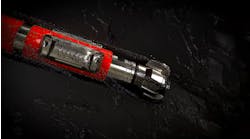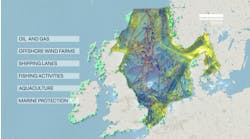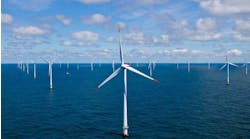NZTC opens 2022 competition for ‘cleaner’ North Sea technologies
Offshore staff
ABERDEEN, UK – The Net Zero Technology Centre (NZTC) has initiated its 2022 Open Innovation Programme.
Its goals are to promote development and deployment of technologies that can reduce offshore emissions, speed up delivery of clean energy, and help fulfil the UK’s net zero ambitions.
NTZC plans two funding competitions, the first opening on March 16 and the second scheduled for October, with a total pool of £10 million ($13.12 million) to be made available.
Companies worldwide can apply, with a maximum of £1 million ($1.31 million) awarded to each successful project. The seven technology focus areas identified for the first competition are:
1. Carbon capture, utilization and storage (CCUS)
2. Hydrogen and clean fuels
3. Renewables and energy storage
4. Zero emissions power
5. Venting and flaring
6. Integrity management
7. Late life and decommissioning.
Digital and data architecture, smart assets and field automation will be included in the technology focus areas within the second competition in October.
In relation to the focus on zero-emissions power, the NZYC noted that UK offshore oil and gas facilities required 21TWh of power in 2018.
This led to emissions of around 10 MMt CO2e (70% of all offshore oil and gas emissions), because the power was generated by burning natural gas or diesel.
As oil and gas products will continue to be needed during the UK’s energy transition, the NZTC wants to cut emissions from power generation offshore through on-platform solutions in the following areas:
* Technologies that facilitate and optimize the conversion of existing electrical power systems on brownfield assets to partial/full electrification (including alternative fuels)
* Retrofittable energy storage for offshore facilities to ensure that they use power efficiently to minimize emissions
* Local clean power generation for offshore assets and infrastructure.
The NZTC also aims to support technologies that can eliminate the need for category 1 (base load) and category 2 (operational) flaring within three focus areas:
* Gas export technologies and methodologies that allow excess methane to be exported using existing in-field infrastructure
* Gas recovery and storage technologies that enable excess methane gas to be stored locally for transportation or local gas to wire applications
* Development of predictive plant over pressurization technologies to minimize gas recovery/flaring requirements.
03/08/2022



